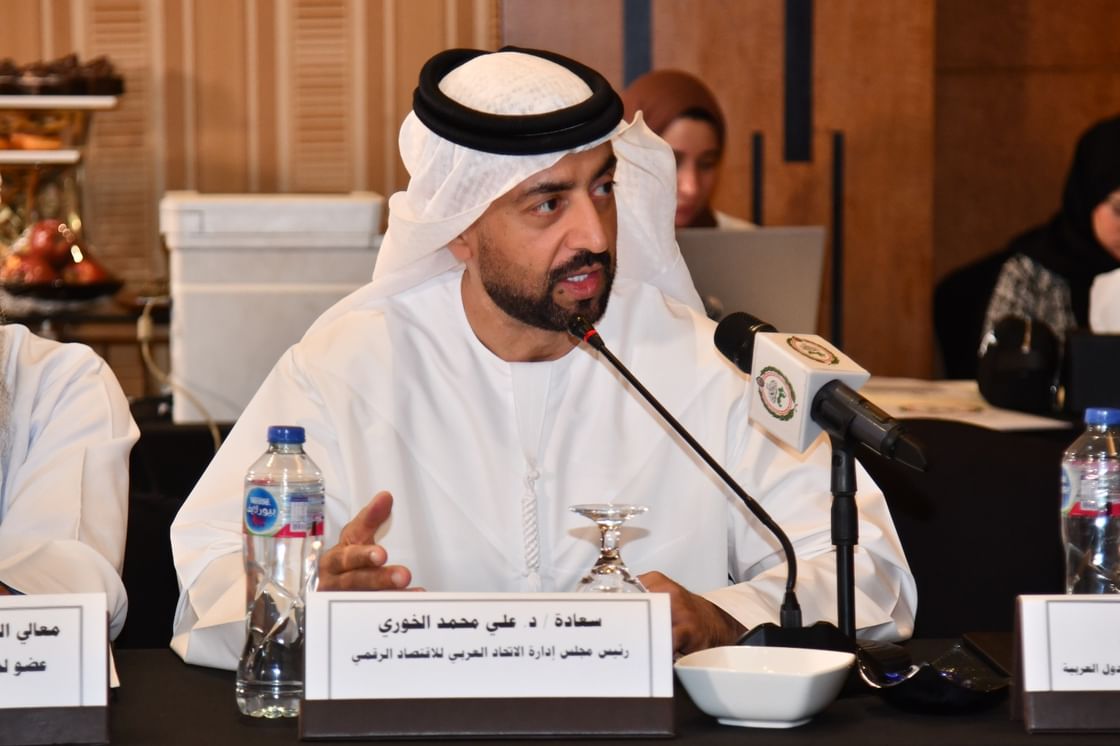Published: December 17, 2018
The first Arab Digital Economy Conference in Abu Dhabi yesterday reviewed the Arab region’s shared vision for digital economic transformation, the global situation, the contribution of Arab countries to the global digital economy, and cooperation with the United Nations. Richard Kirby, Chair of the Strategic Review Committee and Senior Advisor for Regional Cooperation in the Field of E-Government and Knowledge Management, moderated the conference. The strategy presented at the Arab Digital Economy Conference revolves around doubling the gross national product of Arab countries by 2030, reaching $4.2 trillion, compared to the current $2.6 trillion.
In the first session of the conference, Vincenzo Aquaro, Director of the Division for Public and Intergovernmental Institutions at the United Nations, reviewed the 2030 Global Economic Agenda and its progress.
For his part, His Excellency Engineer Atef Helmy, former Egyptian Minister of Communications and Information Technology, stated that the Arab world is experiencing a digital transformation, and that it is the only way for Arab countries to build their economies. He pointed out that Arab countries vary in their economic conditions, and that some have achieved significant progress and development in sustainability.
He stated that the United Arab Emirates tops the list of Arab countries that excel in the digital economy. It is the first country to provide and produce digital information, and the country with digital strategies that have created numerous economic opportunities. He pointed out that new technologies have a significant impact on economic strategies and visions.
Helmy called on those working on implementing the Arab Digital Economy Strategy to determine the Arab world’s position in global digital transformations and the need to rapidly adapt to economic developments. Data showed that the UAE accounts for 18% of the region’s digital economy, Saudi Arabia 15%, Egypt 7%, and the Middle East 6% of the global total.
He questioned how to focus on digital citizen achievement in Arab countries, noting that there are three groups in the Arab digital economy: the first is the countries that have achieved this, namely the Gulf countries; the second group includes the rest of the region, including Jordan, Morocco, and Lebanon; and the third group is concerned with finding the necessary tools for development.
He stated that there is a solid infrastructure in the Arab Gulf countries for the digital economy, noting that governments are required to encourage digital work and coordination and communication between governments and peoples.
For his part, Peter Dery, Minister and Digital Policy Advisor at the European Federation Delegation, discussed digital transformation processes and EU representation, noting that 1.5 million people in Europe work in digital commerce and that the EU has the right vision. David Eves, a lecturer in public policy and director of digital governance at Harvard University, said via video conference: “We must determine how to use computers, awareness programs, use infrastructure, and structure governments that support digital commerce, and how to work on developing the skills that provide the infrastructure to attract the largest number of citizens to engage in commerce.” He called for organizing numerous workshops and awareness programs to enhance skills and transition from a paper-based system to a digital one.
The Shared Agenda session, moderated by Sophia Girouday, President of Wise Media and a member of the Swiss Strategic Review, addressed a global perspective. She noted that the digital economy impacts peace and prosperity.
The session, which featured Stefano Manservesi, Director-General for International Development at the European Commission; Major General Gert, Deputy Commander of the NATO Rapid Reaction Corps; and His Excellency Tarek Amer, Governor of the Central Bank of Egypt, addressed the European digital economy, which represents €400 billion of the total volume of global digital trade. The session also addressed the European Commission’s efforts to address challenges that facilitate the introduction of the internet and information technology and enhance the skills of all individuals.










